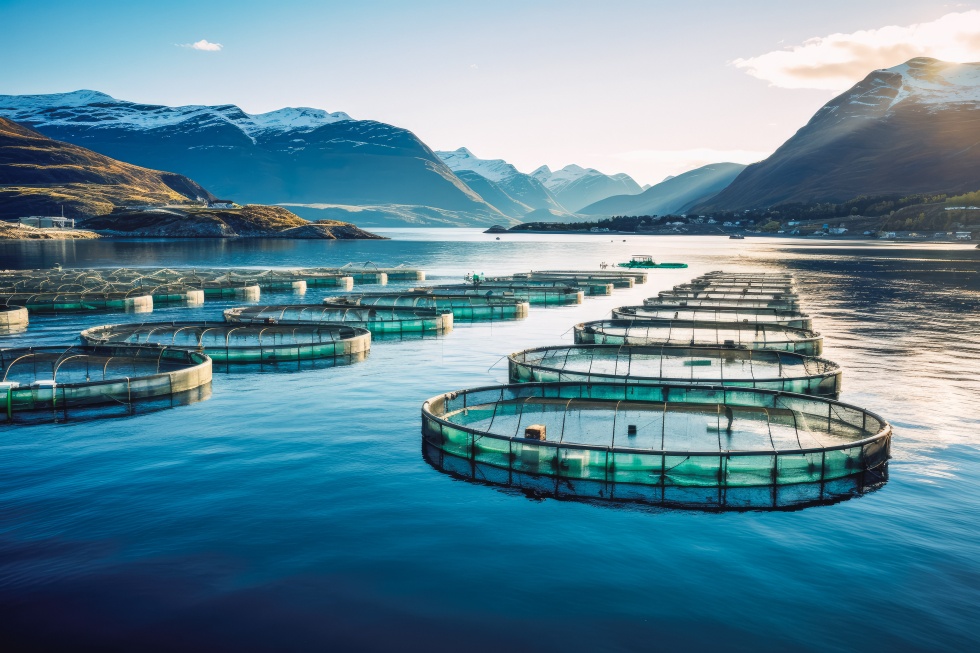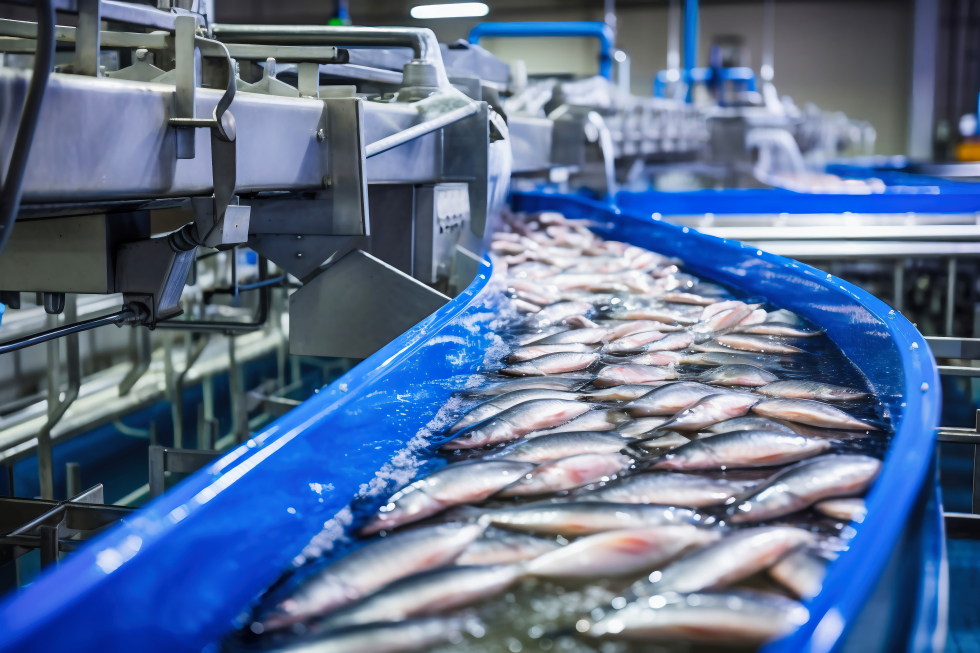Unlocking Fishing Sustainability Trends for a Greener Tomorrow
Dive into the latest trends shaping fishing sustainability. From responsible aquaculture to eco-friendly practices, explore the key drivers for a more sustainable seafood industry.

In the intricate web of international trade, sustainability emerges as a defining factor, transcending industries and weaving through various sectors. In the world of import-export, where the currents of commerce connect continents, the significance of sustainable practices extends to even the deep blue seas. Let's explore the realm of "Fishing Sustainability" and how it intertwines with the fabric of responsible global trade.
Fishing Sustainability
The oceans, often referred to as the Earth's last frontier, are not immune to the impact of global trade. The introduction sets the stage for understanding the critical role of sustainable fishing practices in the broader context of international business. Here, we'll delve into the delicate balance required to preserve marine ecosystems while meeting the demands of a thriving global seafood market.
Sustainability in fishing extends beyond ecological considerations; it becomes a strategic necessity for businesses engaged in aquaculture and fisheries. It's not merely about preserving the marine environment; it's about ensuring a sustainable supply chain that aligns with global values of responsibility and conservation.
Importance of Sustainable Fishing
Sustainable fishing goes beyond meeting immediate economic needs; it's a strategic approach that ensures the long-term health of marine ecosystems and the preservation of fish stocks. As the world grapples with environmental challenges, the fishing industry faces the dual responsibility of meeting consumer demands while safeguarding the oceans.
In response to the growing awareness of environmental issues, consumers increasingly seek ethically sourced seafood, creating a market trend that aligns with the principles of aquaculture and sustainability.
Global Initiatives and Regulations
A comprehensive understanding of global initiatives and regulations is crucial in fostering sustainable fishing practices. International agreements, such as those championed by the Marine Stewardship Council (MSC), are instrumental in promoting responsible fisheries management.
These initiatives set the stage for the development of regulations that guide the industry toward more sustainable paths. The cooperation of governments, non-governmental organizations (NGOs), and businesses is essential in aligning practices with the broader goals of fishing sustainability.
Sustainable Fishing Practices
Implementing sustainable fishing practices requires a commitment to responsible methods. Selective fishing techniques, such as those minimizing bycatch, contribute to the conservation of marine biodiversity. Additionally, seasonal and area-based fishing restrictions help in the regeneration of fish populations.
The adoption of eco-friendly gear and technologies, including biodegradable fishing equipment, reflects a shift toward practices that prioritize the health of oceans and ecosystems. These measures collectively contribute to the establishment of sustainable fish farms and ensure the responsible management of aquatic resources.
Notable Statistics:
- According to the Marine Stewardship Council (MSC), as of 2023, over 400 fisheries globally are engaged in the MSC certification program, covering more than 16% of the world's wild-caught seafood.
- Sustainable aquaculture is on the rise, with a 2022 report indicating a 5.8% annual growth rate in the global aquaculture market.
- A survey by GlobeScan found that 55% of consumers globally are willing to pay more for seafood products that are certified as sustainable.

Economic Impact of Sustainable Fishing
While there might be initial challenges in transitioning to sustainable fishing practices, the long-term benefits are substantial. Sustainable fishing is not merely an environmental consideration; it has a direct impact on the economic stability of fisheries and the livelihoods of those dependent on the industry.
Beyond meeting the demands of eco-conscious consumers, some economic incentives and certifications reward fisheries for embracing sustainability. This dual focus on economic viability and environmental responsibility creates a win-win scenario for the industry.
Key Economic Insights:
- A study by the World Bank suggests that investing in sustainable fisheries can yield economic returns of up to ten times the initial investment.
- The global market for sustainable seafood is projected to reach USD 15.32 billion by 2027, driven by increasing consumer awareness and demand.
Challenges in Achieving Fishing Sustainability
Every journey encounters challenges, and the path to sustainable fishing is no exception. For businesses engaged in the import-export of seafood, understanding and addressing these challenges is essential for navigating the complexities of the global seafood trade. It's an acknowledgment that the road to sustainability is not always smooth but one that businesses must traverse for the long-term health of the industry.
- Resistance to Change: Traditional fishing practices deeply rooted in communities may face reluctance or resistance when transitioning to sustainable methods.
- Economic Pressures: The shift to sustainable fishing might incur initial costs and changes in economic dynamics, impacting the livelihoods of those dependent on the industry.
- Global Enforcement Gaps: Inconsistent enforcement of international regulations poses challenges, as fishing activities often transcend national boundaries, requiring unified global efforts.
- Technological Barriers: Adoption of sustainable fishing technologies and practices may face obstacles due to the availability, affordability, or acceptance of new tools within the industry.
- Educational Awareness: A lack of awareness and understanding of the benefits of sustainable practices among fishing communities and consumers can impede progress.
- Overfishing Concerns: Balancing the need for economic activity with the imperative to prevent overfishing and preserve marine ecosystems presents a delicate challenge.
- Climate Change Impact: Changing climate conditions affect fish habitats, migration patterns, and stock health, adding complexity to sustainable management efforts.
Collaboration for a Sustainable Future
The path to fishing sustainability requires collaboration on multiple fronts. Governments, NGOs, businesses, and consumers must work together to create a holistic approach that addresses the diverse challenges faced by the industry. Cross-industry collaboration is key to fostering innovation and implementing effective solutions. Encouraging partnerships that span the entire supply chain ensures that sustainability practices are integrated seamlessly into the fabric of the global fishing trade.
Future Trends in Fishing Sustainability
As technology continues to advance, the future of sustainable fishing holds promising developments. Innovations in fishing technologies, emerging consumer preferences for eco-friendly seafood, and anticipated shifts in international policies and agreements will shape the trajectory of the industry.
Keeping abreast of these trends is essential for businesses operating in the global fishing market. Embracing these advancements ensures that the industry remains at the forefront of environmental sustainability and meets the evolving demands of a conscientious consumer base.
Emerging Trends:
- Blockchain in Seafood Traceability: The integration of blockchain technology is poised to enhance transparency in the seafood supply chain, assuring consumers of the sustainability of their choices.
- Alternative Proteins: The rise of alternative protein sources, such as plant-based and lab-grown options, is influencing consumer preferences and shaping the future of sustainable seafood.
Sail Into a Sustainable Tomorrow with Export Portal
As we conclude this exploration of fishing sustainability in international business, the invitation is extended to businesses navigating the seas of import-export. Join Export Portal, not just as a trading platform but as a partner in building a future where responsible trade is the wind in our sails.
Embrace the compass of sustainability, set sail on the Export Portal, and be part of a global network that understands the significance of responsible practices in shaping the future of international trade. The seas of opportunity are vast, and the Export Portal is the vessel that propels your business toward a horizon where trade is not just about transactions but a legacy of sustainability.






Comments 0